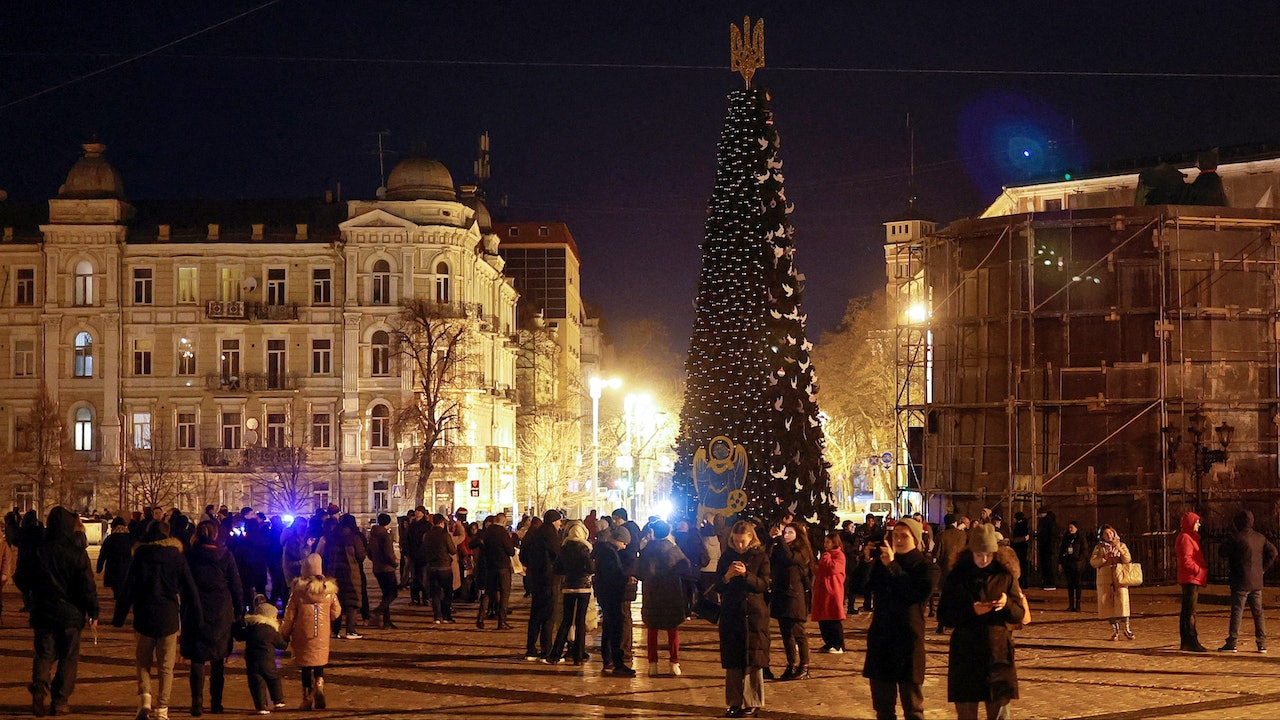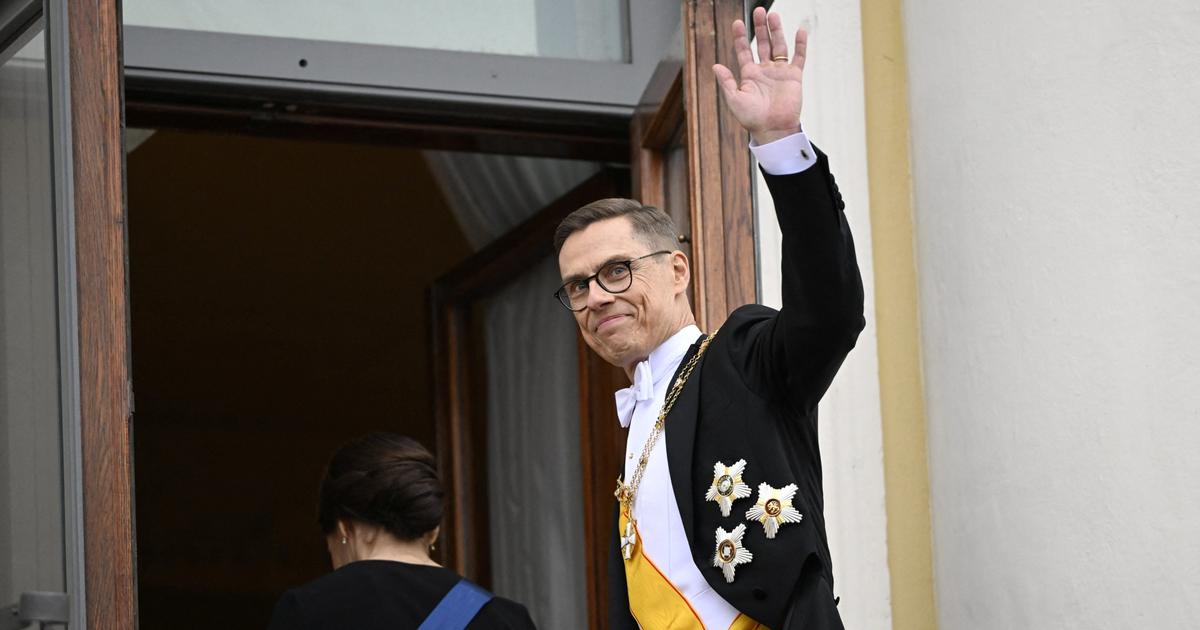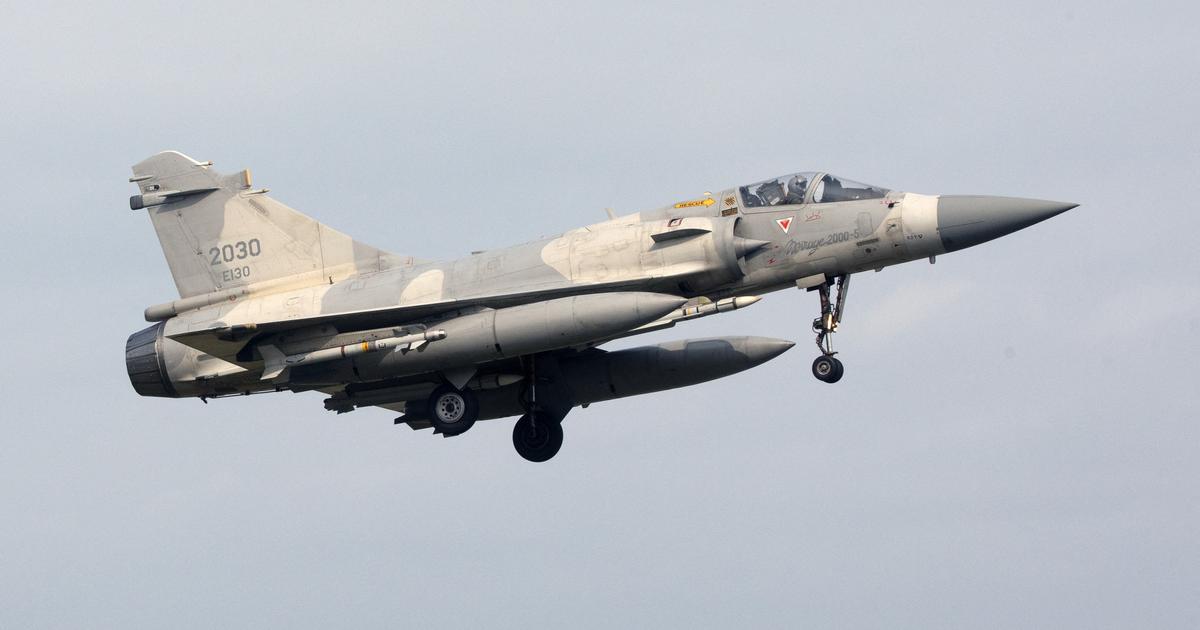The development of any situation is also a coherent process, and it is difficult for us to find an exact time point as the end of a certain era.
When an era ends largely depends on people's subjective interpretation.
Nevertheless, when people in the future look back at history and want to find out when the "post-Cold War era" will end, on February 24, 2022, Russian President Vladimir Putin ordered to enter Ukraine. I believe it will be a very good choice .
In the heated discussions over the past few years such as "China-US competition", "global multi-polarization" and "new cold war", no one would be foolish enough to see that the post-Cold War era of US dominance is dying.
But no event so far has highlighted the end of the so-called Pax Americana more than the Russo-Ukrainian war and its developments.
The other side of Western solidarity with Russia
From the namelessness and injustice of the invasion of Iraq in 2003, to the populism and unilateralism after Trump (Donald Trump) was elected in 2017, to the withdrawal of troops from Afghanistan under the auspices of Joe Biden in 2021 Some commentators regard these events as the end of the post-Cold War era and peace in the United States.
Although the development of these events, either the United States still takes the initiative, or the geographical influence is limited, they all point to the historical inevitability of the demise of the US dominance.
(History itself is not inevitable, but under certain premises—such as the long-term growth trend of China’s national power—it seems to have an inevitable trend.)
The outbreak of the Russo-Ukrainian war shattered the mirror image of American peace in one fell swoop.
On December 31, 2022, Putin's New Year's speech was played on TV in a Moscow subway car.
(Reuters)
Many Western observers hold the opposite view.
They believe that after Trump severely undermined transatlantic relations, NATO was questioned as "brain dead", and Biden's withdrawal from Afghanistan was chaotic, Western countries that people thought had different interests in Russia and Ukraine would be in Putin's dominance. After the march, they were torn apart and could not put up a relatively united front, but what made them "overjoyed" was that the war has entered the 11th month, but despite the many differences between the United States and Europe and within Europe, they are still united Rise up to support Ukraine, and even allow Ukraine to gain an advantage on the battlefield many times.
Therefore, in the eyes of many Western (especially American) opinion leaders, 2022 is the year when the West will stand up again.
This observation is certainly not wrong.
But looking at it from another perspective, after NATO led by the United States and the entire Western world "stand up again", Russia is still able to withstand their unprecedented sanctions, while China, India, Southeast Asia, Africa, Latin American countries also did not stand in line with the United States and the West.
This phenomenon itself has actually proved that the power of the United States and the entire Western world is no longer sufficient to control the global situation.
Even if the Russo-Ukrainian war ends in a way that is more beneficial to the West, it will not change this fact.
It is also surprising that the disappearance of the United States and even Western hegemony was finally fully revealed by the Russo-Ukrainian War.
Who is the "pole" of a multi-polar world?
Prior to the Russo-Ukrainian War, discussions on the "post-Cold War era" and other general world situations often focused on the competition between China and the United States.
Anyone who believes in the existence of a peaceful Western "one power" era in the United States will think that it will be China that will be able to declare the end of the post-Cold War era.
However, in the end, what ended the post-Cold War era quite clearly was what was once considered an outdated threat from the "1980s" by former US President Barack Obama, and was once regarded as an outdated threat by the late Republican Senator John McCain. McCain described Russia as "a gas station masquerading as a state".
This may be an accident in the inevitability of history.
On December 31, 2022, Ukrainian soldiers on the front line in Udonetsk watched President Zelensky's New Year's speech.
(Reuters)
The end of the post-Cold War era is often closely linked to discussions such as "China-US G2" and "world multi-polarization."
Among the protagonists, in addition to China and the United States, there is also Europe.
According to the definition of "Baidu Encyclopedia", the multipolarization of the world is "the trend of the transformation of the pattern of international relations from the center of one or two superpowers to the center of power composed of two or more countries or groups of countries with equal strength."
Obviously, according to this definition, people's imagination of the so-called "center of power" in the post-"post-Cold War era" is probably based on the United States or the Soviet Union ("one or two superpowers") in the Cold War era. The multipolar world is conceptualized as the appearance of several United States or Soviet Union played by different countries or regional national organizations in the world.
In this imagination, these "power centers" rely on their own absolute strength to restrict and depend on each other in different regions and international affairs, and the interaction between them determines the direction of the overall situation of the world—only they can control it. The initiative to change the international political situation.
However, if we imagine a multi-polar world based on the Russo-Ukraine War and its subsequent development, the "poles" of the multi-polar world are not necessarily the absolute strongest few countries or regional national organizations, but those who can use these powers Medium-sized or even small countries that seek to counteract each other's interests—these countries may be the most effective actors in the "multipolar world".
Since the Russo-Ukraine War, Turkey is probably the most proud in the international political arena.
Holding the Bosphorus (Bosphorus), the entrance to the Black Sea, Turkey is destined to play an important role in the Russo-Ukrainian War.
Turkish President Recep Tayyip Erdogan, who has been in power for 20 years, will face re-election in June 2023.
(Reuters)
Out of self-interest considerations, on the one hand, Turkey has banned warships that do not use Black Sea ports as their home ports to pass through the Bosporus Strait, weakening Russia’s naval advantage in the Black Sea, and even exporting drones to Ukraine, which has exhausted some NATO members. It also hit Russia's geopolitical strength. On the other hand, Turkey did not follow its NATO "ally" to sanction Russia. Instead, it welcomed Russian funds (whether pro-Putin or not) and bought cheap Russian energy. It also acts as a channel for Russia to import foreign goods, and uses its NATO membership status to veto Sweden and Finland's accession to the alliance, constantly seeking benefits from the two countries and the United States.
At the same time, Turkey has also cooperated with the United Nations to facilitate the Black Sea grain export agreement between Russia and Ukraine, so that the Russia-Ukraine war will not seriously aggravate the global food crisis.
At a time when the West and Russia are evenly matched in local contests in Ukraine, everyone is turning to Turkey, which has instead made Turkey the most effective actor outside of the opposing parties in this war.
Russia's energy war against the West has also greatly strengthened the power of Saudi Arabia, a traditional U.S. ally, to bid for the United States.
Through the control of OPEC’s decision to increase and decrease production, Saudi Crown Prince Mohammad bin Salman was forced to go to Saudi Arabia to “plead guilty” because of his insistence on human rights. Ask for oil.
When Mohammad suspected of breaking his promise to reduce production, and even invited Chinese President Xi Jinping to make a grand state visit, the Biden administration was helpless against him.
Saudi Crown Prince Mohammed bin Salman is attending the G20 summit in Indonesia in 2022.
(Getty Images)
Compared with Turkey, Saudi Arabia's actions are more political than practical, but it has undoubtedly won the initiative in US-Saudi relations.
How can Saudi Crown Prince Mohammad play Biden in the applause if it is not for the international situation that is so strong and restricting each other at the moment?
In recent years, India has been taking advantage of the confrontation between China and the United States to turn itself into a potential beneficiary of industrial chain transfer by Western companies. It has also tried to strengthen its national defense capabilities through security cooperation with Western countries.
After the outbreak of the Russia-Ukraine war, the confrontation between China and the United States is still India's bargaining chip, enabling it to quickly become one of the largest buyers of cheap Russian oil, while almost avoiding any countermeasures and criticism from the West.
In this year's G20 joint statement, Prime Minister Narendra Modi even dominated his wording on the Russia-Ukraine war, just like the leaders of the world's most powerful countries.
In addition to the above-mentioned medium-sized or populous countries, some small countries have also found their own geographical initiative in the multi-party confrontation created by the Russia-Ukraine War. Azerbaijan is an obvious representative of them.
At a time when Russia is unable to take care of Armenia, which is theoretically protected by it, and Europe needs to partially replace Russian gas with Azerbaijani natural gas, Azerbaijan has repeatedly asked Armenia for the disputed Nagorno- Karabakh) put pressure on the two sides in a brief fighting in September that killed nearly 300 people. Now Azerbaijan is even more suspicious of a blockade of 120,000 Armenians in the Naya region for more than 20 days with the acquiescence of the Russian peacekeeping force.
Judging from the situation of Armenia looking around for help, Azerbaijan's chances of achieving its full recovery of the Naka region in the end are not low.
On January 1, 2023, Kyiv continued to be attacked by Russian drones.
(Reuters)
Taking a step back, the economic scale of Russia is probably only equal to that of Italy. The reason why it dared to launch a war against Ukraine and persist until now is because of the confrontation between China and the United States.
Although Russia has its nuclear arsenal as the ultimate threat, if Russia cannot rely on China economically and cannot rely on Putin to target countries that will remain neutral in the broad competition between China and the United States, such a protracted Russia-Ukraine war is fundamentally useless. An international political impossibility.
From this point of view, it is not a coincidence that the end of the post-Cold War era will inevitably be finally revealed by Russia, which is "hopeless to reach the top".
Looking forward to 2023, under the continuation of the Russia-Uzbekistan war and the confrontation between China and the United States, it is foreseeable that these countries that cannot rank in the forefront in terms of absolute strength, but can seize the initiative by taking advantage of the situation where powerful countries check and balance each other, will continue to play a more important role. geopolitical role.
If the "pole" of the multi-polar world is the protagonist of the multi-polar world, we really need to change our perspective at an appropriate time, and focus on these countries that can perform well among the powerful countries.
Perhaps they are the ones who can bring about changes in international politics in a multi-polar world, rather than the powerful countries that target each other and hinder each other.
Looking back on Sino-Japanese relations in 2022: Security strategy shifting from defense to offense A thin strip of water is hard to stop The old dream of the military and state Entering the Russian-Ukrainian war in 2023 The reality of the war: stalemate?
Peace talks?
Who will win the energy war?
Mainland switch|Are the two logics of the "foreign defense import" of many countries to China reasonable?
Kosovo conflict under the Russian-Ukrainian war: Serbia is also preparing for "special military operations"?







